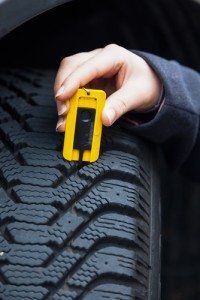
You’ve invested a hefty sum of cash into a new vehicle and intend to keep it in stellar condition as long as possible. Hiring a reputable mechanic and completing scheduled maintenance are just a few of the actions you need to take to maximize the life of your ride.
The more miles placed on the vehicle, the more wear and tear your engine sustains. Cars are meant to be driven, but it’s in your best interest to avoid unnecessary trips to preserve your ride for as long as possible. And don’t put the pedal to the metal; take it easy.
Most importantly, don’t skimp out on routine maintenance or recommend repairs or it will cost you in the long-run.
Here are some simple auto maintenance tips to keep in mind:
Check Fluids & Filters
You should pay a visit to the mechanic every 3,000 to 5,000 miles for an oil and filter change. Otherwise, dirt and other residue will accumulate, placing unnecessary stress on the engine. And don’t forget to check the dipstick between visits to ensure the oil supply in the vehicle is adequate. You can change the oil yourself if you want.
The transmission, brake and coolant fluids are among those you want to keep an eye on. Refer to the owner’s manual for a comprehensive list. While you’re checking the coolant level, inspect the radiator, which is responsible for stabilizing the temperature of your vehicle. You may also need to have it flushed every two years to prevent the car from overheating and avoid costly engine damage.
Clogged air filters equate to poor fuel efficiency, so swap it out as often as needed. Doing so can improve gas mileage by up to 10 percent, the Yellow Pages adds.
Check the Tires
Tires should be properly inflated at all times to maximize gas mileage, minimize wear and most importantly, keep occupants of the vehicle safe at all times. And once it’s time for a new set, don’t delay the process. TireBuyer.com offers a comprehensive document to educate on the various sizes and types of tires that best suit your needs, along with tips on how to maintain the tires after installation.
It’s also necessary to rotate tires every 6,000 to 7,500 miles to prevent uneven wear.
Quick Checks
Be sure to replace the brake pads once they’ve worn too thin or the rotors will sustain damages. Excessive braking should also be avoided to minimize premature wear on the brake pads.
A functioning battery doesn’t necessarily mean a well-maintained one. In fact, failing to keep the terminals and posts tidy can shave time off its useful life.
Not only do worn wiper blades leave unpleasant streaks on the windshield that hamper visibility, but they also present a hazard when driving in extreme weather conditions.
Whether it’s interior or exterior lights, don’t delay their replacements since bulbs aren’t that expensive in most makes and models. Changing headlights yourself is easy. Also, bear in mind that failing to replace exterior lights, such as turn signals, can result in traffic violations.
When inspecting your vehicle, don’t overlook the timing belt. If it displays signs of wear, replace promptly to avoid extensive damage to the engine.
Leave a Reply
You must be logged in to post a comment.